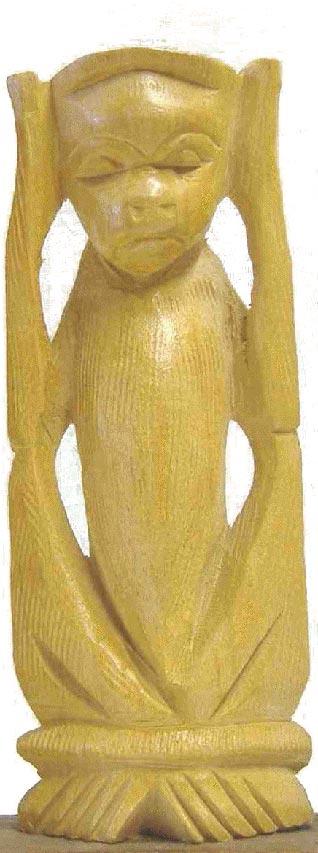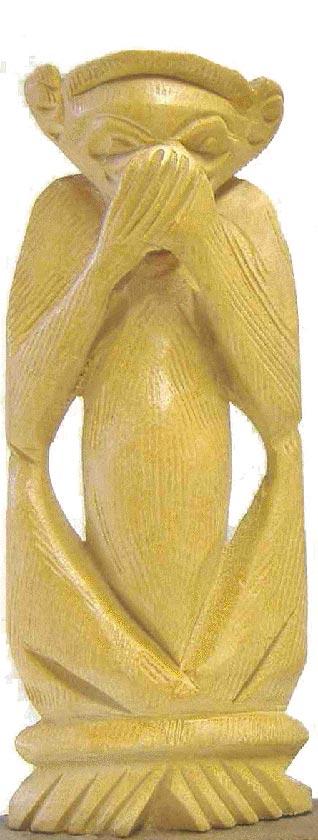Columnists
When Ignorance is Bliss
by I.J. SINGH
What are the fundamentals of our religion and how well do we know them?
Interesting question, isn't it?
The independent Pew Research Institute and its forum on religion and public life recently conducted a telephone survey. It asked 3400 Americans 32 fairly simple questions about the Bible, as well as Christian and Jewish beliefs and practices.
Those who wish to explore it further should look at the report by Laurie Goodstein in the New York Times of September 28, 2010.
The questions weren't so complex if you were raised in this society or in the relevant faith tradition, and they followed the multiple choice format. (I usually think of it as the multiple guess system.) Some sample questions pertained to what is or is not in the Ten Commandments; identifying the faith of most Indonesians (answer Islam); naming the person whose writings and actions inspired the Protestant Reformation (only 47% of Protestants knew it was Martin Luther); is it consistent with rulings by the U.S. Supreme Court, that a public school teacher may read to students from the Bible as an example of literature (answer yes, but fewer than 25% knew that). Fully 45% of Catholics did not know the doctrine that the consecrated bread and wine at Communion transubstantiate into the flesh and blood of Christ.
Paradoxically, almost 89 percent answered correctly that a public school teacher is NOT permitted to lead a class in prayer. Slightly better than half (51%) knew that Joseph Smith was Mormon; even a larger number (82%) knew Mother Teresa was Roman Catholic.
As we examine the relative knowledge base of most citizens about religions, keep in mind the current resurgence of political movements that want to run the civic society by fundamentalist and exclusive application of Christian values and practices. Keep your eye on the increasing number of politicians, including our last President (George W. Bush), who emphasize a public display of their religiosity and mix it with matters of policy. Consider the raging public debate on how fundamentally and religiously Christian the Founding-Fathers may or may not have been. And would they support the Christianizing of this nation?
In conclusion, the 3400 respondents were able to correctly answer only about half the questions. A fifty percent success rate would not even earn a C- in any half way decent school. Many respondents erred on questions on their own faith.
What caught my eye was that the consistently high scorers were agnostics and atheists, followed by two minority faiths: Jews and Mormons. Isn't that absolutely amazing? Out of a total of 32, atheists/ agnostics answered 21 questions correctly; while Black Protestants (13.4) and Hispanic Catholics (11.6) led the rear.
I am not here to argue for the virtues of agnosticism or atheism but isn't it possible that a person, even if he actively turns away from religious belief of any kind, is at least involved in a level of self-study, exploration and reflection.
Would you say that some reflection is better than none? The choice "none" would indicate the way of the one who outwardly may appear dedicated to religion as a way of life and yet the inner core remains untouched. Religion then becomes reduced to rites, observances, empty rituals and an hour or so in the preferred place of worship on Sunday. These are practices that do not really touch one's life.
Of the difficult questions on core religious values, the most "right" answers came from Mormons and White evangelical Protestants. On questions about other world religions like Buddhism, Hinduism and Islam, the most correct answers were from atheists and Jews.
Atheists, agnostics, Jews and Mormons seemed to have done better than most mainstream Christians perhaps because they are minorities, and that means more interaction with others who are unlike them; hence the need and the opportunity to learn about neighbors.
I know we Sikhs often despair that our non-Sikh neighbors know so little of us despite our presence in this country for over a hundred years, but I would turn the question around: How well do we know our Jewish and Christian neighbors.
At the same time, one would think that the findings of the survey are startling as well as disappointing. I would expect people to be more in touch with the fundamentals of their own beliefs and practices.
The inevitable question hinges on how we Sikhs would do or if we would respond any differently if facing a questionnaire on our own faith, Sikhism, and the beliefs of our neighbors.
Surprisingly, we have a somewhat partial but painful answer.
I think it was perhaps a decade ago when some young Sikhs were tinkering with the idea of forming the Sikh Coalition that has now evolved into a wonderful Sikh advocacy organization.
This was also before there was a Sikh Research Institute (SikhRI) with the basic agenda of teaching the fundamentals of Sikhi to the young and old alike. The young hopefuls had come up with the idea of working productively with gurdwaras on some general educational endeavors in Sikhi.
A few of these young Sikhs prepared a brief questionnaire on some fundamentals of Sikh history. Believe me, the questions were not complex. I remember there was one that challenged the respondents to name the sixth, seventh and eighth Gurus in the correct sequence.
We invited the Management Committee and Trustees of the gurdwara for a limited premiere of the project and asked them to take the quiz confidentially.
A prominent trustee got a look at the questions and turned several shades of the spectrum. This, he said, would not be done. Why? Because mistakes would be made and it would seriously demean and diminish the gurdwara leaders. It is not to be permitted. He was not at all abashed to point out that questions, like the one I referred to here, were just too difficult. He was absolutely not amused when I pointed out that the former President, Jimmy Carter, taught
Sunday School at his church from age 16 on and even through the years of his presidency.
We salvaged the proceedings but the idea of such continuing education in a gurdwara was immediately rendered stillborn or, should I say, aborted.
But to a hard-headed man like me, hope springs eternal. Recently I was at an educational function for the SikhRI. Many young people of high school and college age were in attendance.
The conversation turned to the state of our gurdwaras and I recounted the above story. Two young guys were so excited about the possibility that they prepared a brief questionnaire for their massive gurdwara in California and e-mailed it to me for my input and comments.
The onus is now on me. I have to polish it and render it somewhat harmless to the fragile egos of the big honchos at the gurdwaras.
I would love to see how it flies but am anxious that these well meaning young people are not excoriated in return.
Squelching them would be easy, but this is not the "appreciation" they need or deserve.
ijsingh99@gmail.com
September 30, 2010
Conversation about this article
1: K. Singh (Boston, Massachusetts, U.S.A.), September 30, 2010, 11:16 AM.
I think this quiz designed by the California Sikhs as part of Sidak should be taken to all gurdwaras: all gurdwara committee members, granthis and those involved should take the quiz.
2: Harinder Singh (San Antonio, Texas, U.S.A.), October 01, 2010, 8:42 AM.
Another element of the Pew study: it is not that religious people know less about religion, but "educated" people know more about notions at large, including religion. 100 years later, despite its shortcomings, the Singh Sabha movement makes much more sense even today - it raised the awareness of the average Punjabi and Sikh, resulting in the creation of schools and colleges, newspapers and journals, printing presses, writers, activists, gurdwara reforms, banks, political cohesion and force, a clearer identity, to name but a few. The question then is: how can we in 2010 work with 85% of the normal Sikh population curve to address their development concerns?
3: Bibek Singh (Jersey City, U. S.A.), October 01, 2010, 12:16 PM.
I recently read an article about the Khalsa Schools. It recommended that there must be a 'Khalsa School' in every city/ village (of Punjab) and at least one 'Khalsa University' in every district. It elaborated the model that should be adopted to educate the young minds/ common man. It also compared the current state of affairs (in India) with that of old 'pure' Khalsa schools that used to promote real history and gurmat. I liked the idea as this is the best way to educate and promote Sikhi. To add to the above idea, we can also have certifications similar to technical/ project management certifications (Sun Certified/ PMP), etc., from well-reputed organizations like SikRI. The media can also play an important role. For e.g., we can have TV programs similar to 'Who wants to be a millionaire.' The moral of the story is that the mind will retain 'knowledge' only if it is subjected to certain tests.
4: Amardeep (U.S.A.), October 02, 2010, 3:17 PM.
There is a fine correlation between one's knowledge and one's spiritual worth (or is there any?). As written in The Guru Granth, absorbing the One Name is enough. May be to dispel ignorance, knowledge is worthy but for spiritual worthiness, knowledge may be useless.
5: I.J. Singh (New York, U.S.A.), October 02, 2010, 5:47 PM.
Amardeep ji: But the spiritual is not to be sundered from the mundane - meeri and peeri together form and define us. Forget not that Guru Granth tells us" "Aklee(n) sahib saaviyae/ aklee(n) paayiae maan." It does not ask us to leave the intellect outside the door when we come to the Guru. It tells us to let the spiritual underpinnings drive our worldly behavior.





